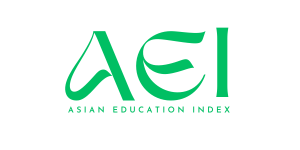Use Of Modular Teaching Technologies In Teaching Chemistry In The School System
Keywords:
modular education, chemistry teaching, school educationAbstract
This work discusses the prospects and advantages of using modular teaching technologies in teaching chemistry in the school system. Modular education is a flexible, structured approach in which the educational material is logically divided into complete modules, each of which is aimed at achieving specific educational goals. The work analyzes the features of developing chemistry modules, the principles of their implementation in the educational process, as well as the impact of this approach on the formation of students' cognitive activity, the development of their independence and increasing their motivation to study science. Special attention is paid to the integration of modular technologies with modern digital teaching tools. In addition, the work presents the results of a pedagogical experiment confirming the effectiveness of modular teaching in increasing the level of mastery of chemical knowledge by schoolchildren
References
1. Sh.M.Mirziyoyev. Erkin va farovon demokratik o‘zbekiston davlatini birgalikda barpo etamiz. –
Toshkent. “O‘zbekiston”, 2016. -56 b.
2. O‘zbekiston Respublikasining «Ta’lim to‘g‘risida»gi Qonuni va Kadrlar tayyorlash milliy dasturi.-
Toshkent:2020 yil 24 sentyabr.
3. Tashmatova R. V., Ruziev I. X., Tog‘Ayeva M. A. Kimyo darslarida ishbilarmonlik oyinlaridan
foydalanish //Oriental renaissance: Innovative, educational, natural and social sciences. – 2021. – Т. 1. –
№. 10. – С. 153-158.
4. Третяков П.И.,Сениовский И.Б.Технология модулного обучения в школе.-М.,1997.
5. Машарова Т.В.Современные педагогические технологии.-Киров:Изд-во ВГПУ,1998.
Downloads
Published
Issue
Section
License

This work is licensed under a Creative Commons Attribution-NonCommercial 4.0 International License.
User Rights
Under the Creative Commons Attribution-NonCommercial 4.0 International (CC-BY-NC), the author (s) and users are free to share (copy, distribute and transmit the contribution).
Rights of Authors
Authors retain the following rights:
1. Copyright and other proprietary rights relating to the article, such as patent rights,
2. the right to use the substance of the article in future works, including lectures and books,
3. the right to reproduce the article for own purposes, provided the copies are not offered for sale,
4. the right to self-archive the article.













